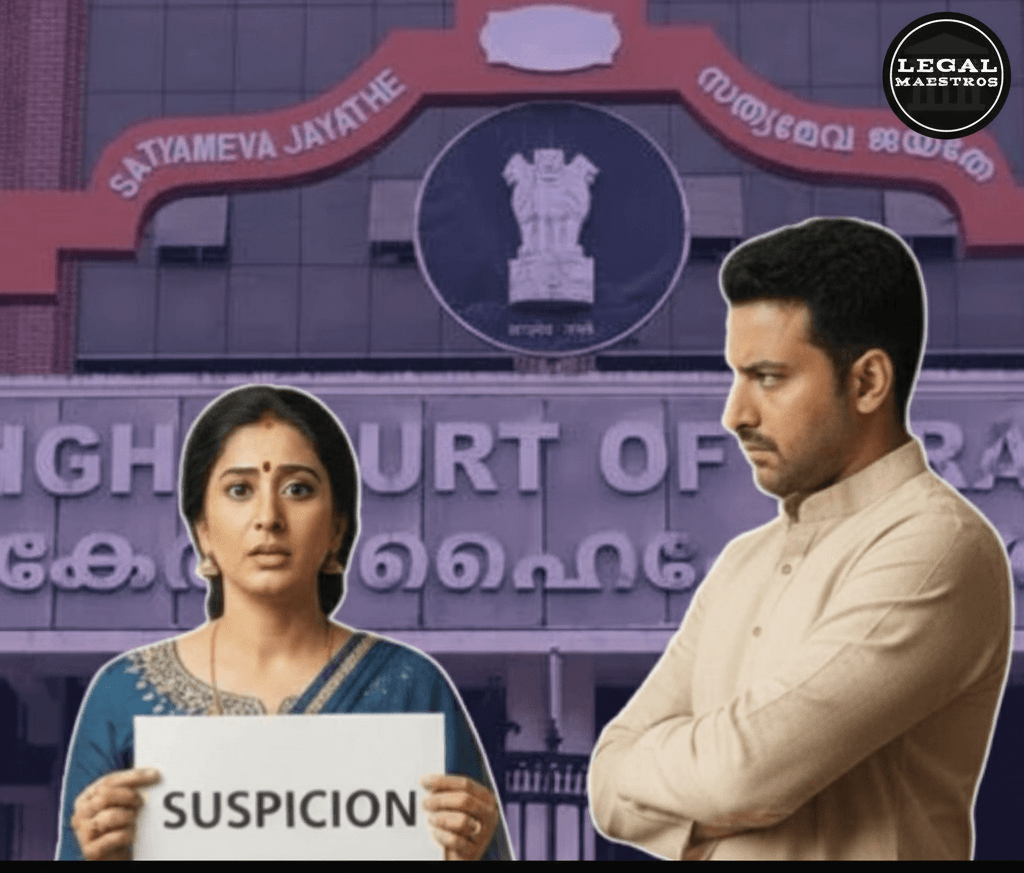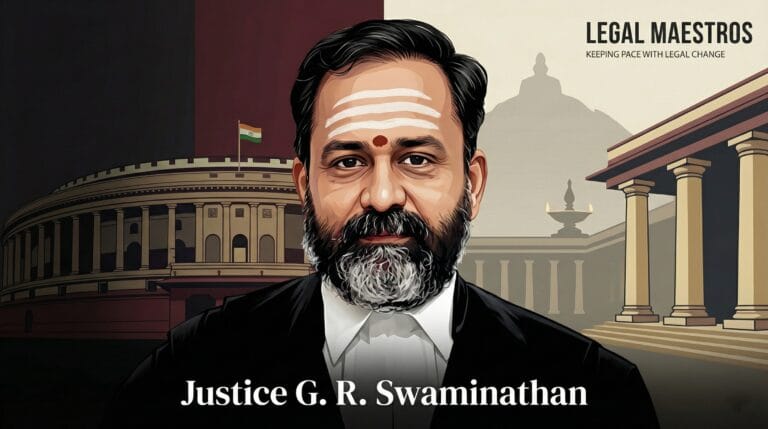
Kerala HC Finds Suspicious Husband Turns Matrimonial Life Into Living Hell, Grants Divorce To Woman
Emalook Says Suspicious Relationship Condemned by High Court.
Kerala high court in a landmark ruling gave a divorce to a woman on the basis that the severely suspicious and controlling nature of her husband constituted a severe mental cruelty. The observation was made by a division bench that consisted of Justice Devan Ramachandran and Justice M.b. Snehalatha, that a suspicious husband can make matrimonial life a living hell. According to the court, this kind of behavior corrupted the very premises upon which a marriage should be based and that is, love, faith, and understanding.
The vehement comments of the court were made when it granted an appeal made by the wife. She had first petitioned to be divorced but her application was ruled out in a family court in Kottayam. The High Court reversed it and held that the husband act of always suspecting his wife of infidelity, of spying on her movements, and limiting her freedom had killed her self-respect and mental tranquility and thus could not bear to carry on living with the husband anymore.
This ruling strengthens the legal doctrine of cruelty that is not necessarily physical in nature. The court affirmed that chronic mental and emotional torture, particularly on unjustified suspicion is a legitimate basis on which a marriage can be terminated. According to the bench, as soon as trust is substituted by suspicion, the relations lose all their meaning and turn into a source of humiliation and fear.
For any queries or to publish an article or post or advertisement on our platform, do call at +91 6377460764 or email us at contact@legalmaestros.com.
A Life of Perpetual Supervision and Surveillance.
The testimony of the wife was so sordid on her life following the marriage that was solemnized in 2013. The petitioner was a nurse working and her husband persuaded her to quit her job. He had assured her to find her a job in foreign land where he was on duty. She dropped her career and joined him in the foreign country and soon, she discovered that her life was getting limited as he would have assured her.
The husband discouraged his wife against any employment once in a foreign land. His distrustful character, of which, as she was accusing him, he had begun in the outset, grew. He would also subject her to a lot of questioning each time she interacts with any other male human being. Even her freedom was highly restricted since he would keep a check on everything that she did and even prohibit her to make phone calls when he was away.
The wife also experienced the situation when she was confined in their room whenever her husband went out. This captivity was accompanied with other types of restrictions, including limiting her television watching to devotional shows only. She further accused she was assaulted and humiliated physically. These claims were credible in the eyes of the court and the actions of the husband were mentioned as an encroachment of her personal freedom.
The husband himself, as his defense, rejected all the accusations. He argued out that the allegations of inhumanity were insignificant and only constituted the usual wear and tear of family life. The High Court however overruled this contention arguing that the actions of the husband went well beyond normal fights in marriage and amounted to an evident pattern of controlling and suspicious conduct.
Mental Cruelty in marriage is defined by court.
The High Court in its ruling has given a definite explanation of what mental cruelty entails in a matrimonial set up. The bench reasoned that cruelty is a line of behaviour that impacts negatively on the other partner. It is either mental or physical or even intentional or unintentional. This court observed that cruelty could not be expressed with precision since its effects differ depending on the individual.
The judges noted that a husband who has a habit of doubting the integrity of his wife destroys the self-respect and peace of mind of the wife. According to the court, suspecting his wife without reason, observing her, and infringing the freedom of a wife is something that causes immense mental agony and humiliation. It is a pattern that eliminates respect towards each other and provides fear and tension at home.
The court pointed out that a wife who has experienced such treatment has a right to live with dignity and freedom and this is the reason the remedy of divorce was granted. The bench meant the attitude of the Supreme Court that the understanding of mental cruelty is dynamic to societal norms and needs a wide and flexible approach. The judges upheld that the wife has the right to life devoid of matrimonial cruelty as guaranteed in Article 21 of the Constitution.
appeal of the Decision of the Family Court.
The fact that the High Court reversed the initial judgment of the family court was one of the most important points of this case. The lower court had quashed the divorce request of the wife saying that there was no documentary evidence or independent evidence that could have proved her allegations of cruelty. The High Court were much more realistic and practical of the situation, however.
Justice Snehalatha and Justice Ramachandran indicated that a wife under such a controlling attitude and mentally cruel treatment, which is usually done behind closed doors, could not be in a situation to generate documents or eyewitnesses. According to the court, the case of a wife cannot be carelessly discarded just because she failed to produce such evidence.
The High Court realized that the testimony that the wife gave was credible and consistent. It believed that her explanation was enough to establish that she had been subjected to cruelty to the extent that it instilled in her mind that it was dangerous or would result in her death to remain with her husband. The court found that her testimony had substantially and satisfactorily established her case of divorce under Section 10(1) (x) of the Divorce Act, 1869.








